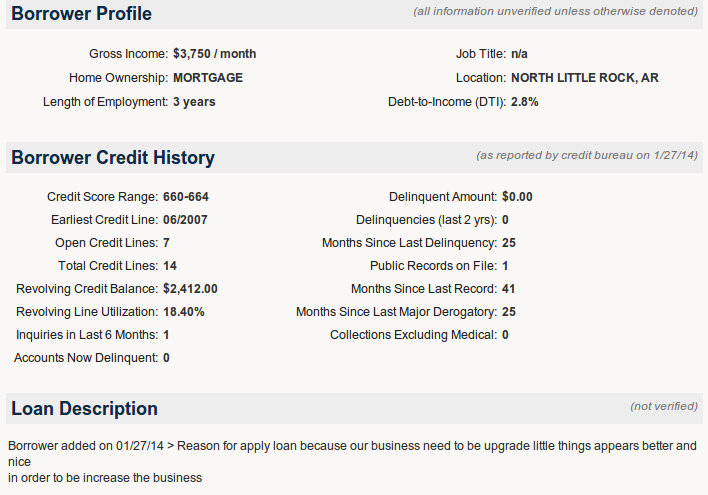business cash advance
Meet the New UCCs
January 27, 2014 For all the small businesses that have gotten funded over the last few years, it’s been said that merchant cash advance companies and their lending counterparts have only filed UCCs against 50,000 unique merchants (not saying that’s correct). It’s an impossibly small number but those that have been in the industry a long time know that deals get recycled again and again. Some merchants have been using this product for a decade now. They jump from funder to funder or they stay with one for a long stretch until one doesn’t want to do business with the other anymore. I’ve seen merchants with a UCC history so long and so chronologically perfect that it’s like reading the book of Genesis. AdvanceMe begat funder B who funded the merchant for 365 days and begat funder C who begat funder D who put the merchant on a starter and begat a 2nd location with funder E, who begat 3 more funders each offering the merchant a 6 month program, Amen. And now they’re applying again still in 2014. Don’t get me wrong, it’s great that businesses have been able to put outside capital to use again and again, but it couldn’t hurt to have some fresh faces.
For all the small businesses that have gotten funded over the last few years, it’s been said that merchant cash advance companies and their lending counterparts have only filed UCCs against 50,000 unique merchants (not saying that’s correct). It’s an impossibly small number but those that have been in the industry a long time know that deals get recycled again and again. Some merchants have been using this product for a decade now. They jump from funder to funder or they stay with one for a long stretch until one doesn’t want to do business with the other anymore. I’ve seen merchants with a UCC history so long and so chronologically perfect that it’s like reading the book of Genesis. AdvanceMe begat funder B who funded the merchant for 365 days and begat funder C who begat funder D who put the merchant on a starter and begat a 2nd location with funder E, who begat 3 more funders each offering the merchant a 6 month program, Amen. And now they’re applying again still in 2014. Don’t get me wrong, it’s great that businesses have been able to put outside capital to use again and again, but it couldn’t hurt to have some fresh faces.
The market is saturated, the old school UCC market anyway. Businesses that have used a cash advance historically can potentially get up to 1,000 calls a year by UCC poachers trying to convince them to switch, stack, or do something else. It makes a lot of companies not want to file a UCC, and many don’t or they mask their filing name because of it.
Other companies in the greater alternative lending space would say, “A UCC? Why would we file that?” In the case of purchasing future revenues, it makes sense to put a public claim on assets purchased. Future revenues are an indeed an asset. But to an unsecured creditor, there are no claims to assets. So when I spotted Lending Club in the wild funding a business, I couldn’t help but check to see if they filed a UCC-1. They didn’t and they don’t. Unsecured business credit cards don’t file them either. I don’t think any unsecured creditor can.
With no UCC-1 on record, is merchant cash advance’s newest competitor invisible? Not quite. Each loan serviced on Lending Club’s platform is registered as a security with the SEC. Each deal has a prospectus and investors rather than “syndicates” can choose to participate in the loan based on limited information provided about the borrower. These loans only range up to $35,000.
Since each loan is registered with the SEC, all of that information is public. But there’s one catch, Lending Club’s borrowers are anonymous. As an existing investor on Lending Club’s platform, I can only see the borrower’s credit score range, location, and other basics. It’s like browsing leads on iBank and deciding which ones you want to buy but instead of paying to get their personal information so you can contact them and collect docs to underwrite, you have to fund them right then and there based on what you see. You never ever get to find out who they are or see their docs.
Here’s a screenshot of a real live business loan listing that any of their registered investors can participate in:

28 people are already participating in this loan. I think the smallest you can contribute is $25. Each loan gets filed with the SEC, which anyone can look up using Edgar.
But what you and I can see on the site seems to be all you can see in the SEC filings as well. Business location, credit, loan terms, and date filed, but nothing that identifies them personally. Unless of course you are smarter than I am and find a way.
Lending Club has made $3.5 billion in consumer loans in just a few short years. I have no doubt that they will be a billion dollar player in the business loan market as well. It sure would be nice to find out more about who they’re funding,especially since their cap is $35,000. There’s a good chance they’ll be underserving their clients’ capital needs.
The guys who figured out reverse UCC searching in MCA early made a fortune. Could reverse SEC filings be the next gold rush?
Lending Club Business Loans are Here
January 19, 2014 As mentioned in a thread on DailyFunder, I have personally seen evidence that Lending Club is already doing business loans. The loan was issued this month in the amount of $35,000 and disbursed to a business, not an individual.
As mentioned in a thread on DailyFunder, I have personally seen evidence that Lending Club is already doing business loans. The loan was issued this month in the amount of $35,000 and disbursed to a business, not an individual.
I have been very outspoken about my belief that peer-to-peer lenders will compete directly against merchant cash advance companies and their short term lending counterparts. I am now absolutely positive that will be the case as the first merchant I saw to receive a Lending Club business loan was a former user of merchant cash advances.
One has to ask themselves if Lending Club will be targeting UCCs, particularly those of their new closest competitors in the space, OnDeck Capital and NewLogic. I was not able to determine the terms of the Lending Club loan but it is still my expectation that it will be a 3-5 year deal with automated monthly payments. Compare that against the industry’s dominant short term lenders that do 1 year deals with automated daily payments.
You can argue that there will be very little overlap in the merchants these companies target but I have seen overlap right out of the gate.
I expect we’ll all see a lot more of this.
Industry Fun Leads to Charity Funds
January 15, 20142013’s alternative business financing fantasy football competition came to a close near the end of the regular NFL season. There were some tough matchups and upsets, but two Florida based companies pulled through to win it all. The league raised a total of $9,000 from its participants and as per the rules, must be donated in equal halves to non-profit organizations selected by the two winners.
Financial Advantage Group selected the Spring of Tampa Bay, a noble choice since their mission is to prevent domestic violence, protect victims and promote change in lives, families and communities. DailyFunder, the trustee of the competition reached out to the organization late last month and made the donation in a low-key manner as per their request. They did express their gratitude to Scott Williams of Financial Advantage Group on their facebook page however:
Business Financial Services selected Wounded Warrior Project. They wrote their own post about the organization and why they are proud to support that cause on their website here: http://www.businessfinancialservices.com/blog/fantasy-football-for-charity/
Wounded Warrior Project accepted their donation with some pizazz, holding a giant check for a photo-op at the organization’s Jacksonville, FL office.

—-
I personally would like to thank Heather Francis of Merchant Cash Group for being a great competition co-host this year as well all of the participants that contributed funds to make these donations possible:
- Merchant Cash Group
- Benchmark Merchant Solutions
- Yellowstone Capital
- Raharney Capital
- Strategic Funding Source
- Sure Payment Solutions
- Pearl Capital
- United Capital Source
- NVMS
- Entrust Merchant Solutions
- Financial Advantage Group
- Snap Advances
- Business Financial Services
- Integrity Payment Systems
- DailyFunder
- Capital Stack
I’m already looking forward to next season!
Will Peer-to-Peer Lending Burn the Alternative Business Lending Market?
January 12, 2014For months I’ve been saying that peer-to-peer lenders will be companies to look out for, the latest being on December 29th. Lending Club fully intends to make the leap from consumer lending to business lending which may possibly pit them against the world of merchant cash advance.
In this video, a Bloomberg reporter asks OnDeck Capital’s CEO if his company will get burned by peer-to-peer lending.
If you watched the whole thing, you might also hear the insinuation that OnDeck’s product is similar to factoring since Breslow explains his loan program much like a merchant cash advance account rep would. “You simply pay x cents on the dollar”
I think there is room for both Lending Club and OnDeck. It’s the little funders of the world that will eventually feel a squeeze.
2014 Starts off With a Case of Red bull
January 10, 2014 Woah, slow down there fellas. Let us digest one thing at a time. We’re not even 2 weeks into the new year and already we’ve learned that:
Woah, slow down there fellas. Let us digest one thing at a time. We’re not even 2 weeks into the new year and already we’ve learned that:
CAN Capital raised another $33 Million (but that they didn’t need it?)
Merchant Cash Advance was the the feature story on the front page of the Wall Street Journal. Seriously…
Bloggers are learning about this industry for the first time. They’re having a bit of trouble getting it right.
PayPal, which just recently kicked off its own merchant cash advance program (or as they call it, their Working Capital Program) has already issued 4,000 advances.
Regulators are freaking out over the use of social media information in loan approvals.
DailyFunder will begin mailing out the first alternative business lending magazine a week from today. It’s free so sign up!
Forget Fancy Algorithms, Give the Merchants a Psych Exam
January 1, 2014Select an answer to each of the following questions:
1. When faced with financial hardship during the course of my loan, I would do the following:
(a) Do nothing and hope my luck changes.
(b) Call the bank and block all debits from the lender and wait for the lender to call me about it.
(c) Change my phone number, hide, and avoid making anymore loan payments at all costs.
(d) Call the lender to inform them of my hardship.
(e) Sell my business and let the lender sort it out with the new owner.
2. The IRS sends you a letter that says they believe you understated your income last year and owe back taxes. As a result I would do the following:
(a) Ignore the letter until it becomes a more pressing issue.
(b) Consult with my accountant/lawyer.
(c) I didn’t file a tax return last year.
(d) Pretend I never got it.
(e) Pay whatever is owed.
—-
Congratulations! based on the answers you chose you have been approved!
—-
 According to the New York Times, Banks in 16 countries are using psychometric tests to gauge the creditworthiness of applicants in lieu of credit reports. That’s because the criteria used to score credit in the U.S. is not always available abroad, particularly in developing nations.
According to the New York Times, Banks in 16 countries are using psychometric tests to gauge the creditworthiness of applicants in lieu of credit reports. That’s because the criteria used to score credit in the U.S. is not always available abroad, particularly in developing nations.
There isn’t necessarily a right or wrong answer to each test question. Instead an algorithm measures the loan repayment performance statistics of each answer and learns to approve or decline based on those selections by applicants in the future. Interesting isn’t it? The questions wouldn’t be easy to manipulate either since they are currently psychological. Applicants are asked for example how strongly they believe in or disbelieve in fate.
Would such an idea have legs for alternative business lending in the U.S.? I think there’s something to it. I can say from experience that in my former lifetime as an underwriter, our team would rarely read from a script during a merchant interview. Instead we would engage applicants in a conversation about their business to gauge their attitude and determine the level of commitment to their work. You’d be surprised what this approach would reveal.
In this context, business owners would share that they had no idea whether or not they were losing money, that they planned on closing the business if the advance didn’t turn things around, that they didn’t care about previous loans that they defaulted on, that they weren’t even the person running the business day to day but rather the name on all the paperwork because they had good credit, or that they were using the money to fund a vacation to the carribean because the business was failing and they wanted to get away. We did make sure to steer the conversation towards the requirements on our checklist, but the final decision on borderline deals was often decided on this call.
Some funders use this interview call just to confirm information on the application, but it should no doubt play a role in a deal approval. That’s just my opinion. Once the deal is funded though, it will all come down to fate, hard work, or coincidence. I guess it all depends on how strongly the merchant agreed or disagreed with each of those on the exam.
Underwrite at your own risk.
Amazon Quietly Funding Small Businesses
December 30, 2013 Ever since Amazon announced their exclusive business loan program last year, they’ve been quietly booking deals. I say quietly because no one really talked about it much ever since. Though the loan program is available only to qualified Amazon.com merchants, it’s very similar to how Kabbage started off with eBay. Amazon’s Business Loan program has all the bells and whistles of merchant cash advance financing and their clients tend to have huge daily sales volumes.
Ever since Amazon announced their exclusive business loan program last year, they’ve been quietly booking deals. I say quietly because no one really talked about it much ever since. Though the loan program is available only to qualified Amazon.com merchants, it’s very similar to how Kabbage started off with eBay. Amazon’s Business Loan program has all the bells and whistles of merchant cash advance financing and their clients tend to have huge daily sales volumes.
So are they really doing deals? You betcha they are. Secured Party Name: Amazon Capital Services. I wonder if any of their merchants would do a fixed ACH deal.
Enjoy.
Peer-to-Peer Lending Will Meet MCA Financing
December 29, 2013 In 2014 the peer-to-peer lending industry will collide with merchant cash advance and the rest of alternative business lending. Get familiar with these names: Lending Club, Funding Circle, and Prosper. They are brothers and sisters in the business of non-bank financing. They’re also seasoned, tested, and much like the merchant cash advance industry, experiencing phenomenal growth.
In 2014 the peer-to-peer lending industry will collide with merchant cash advance and the rest of alternative business lending. Get familiar with these names: Lending Club, Funding Circle, and Prosper. They are brothers and sisters in the business of non-bank financing. They’re also seasoned, tested, and much like the merchant cash advance industry, experiencing phenomenal growth.
The old guard of merchant cash advance companies should take notice. After losing significant ground to Kabbage and OnDeck Capital, a new breed of fighter is about to enter the ring. I hear this phrase too often in response to the threat of competition, “there’s enough opportunity out there for everyone.”
But is there? Aside from the ACH repayment boom, one of the biggest drivers of merchant cash advance industry growth has been stacking. Stacking is the process of issuing an additional advance or loan to a merchant without paying off their existing advances or loans. That puts merchants in the position of having 2, 3, 4, or even 5 daily withdrawals to remain in good standing with all of them.
While the legality and risks of stacking have long been debated, the deeper revelation here is that there may not be as much new opportunity as everyone thinks. There has been an ongoing turf war over land that had already been discovered. It’s caused overall annual funding volume to rise significantly, but there’s not much room for 400%, 500% or 1,000% growth.
Funders like Kabbage came in and conquered the online merchant cash advance space without anyone noticing. Some funders have taken 5 years to double output on a monthly basis. Impressive, yes, but Lending Club on the other hand has more than quadrupled monthly funding volume over just the last 18 months. Not only that, but they’re doing more than OnDeck and CAN Capital (formerly Capital Access Network) combined. That’s massive.

Backed by Google and recently valued at $2.3 Billion, Lending Club is expected to go public in the next 12 months. As they seek to extend their dominance from consumer lending to business lending, funders should seriously ask themselves, is there really enough opportunity out there for everyone?
The Achilles Heel for merchant cash advance companies is money. Regardless of how fast they turn it over, there’s no possible way to experience fast triple digit growth without outside capital. Some funders spend a lot of time and energy trying to raise it. Others are content without it and go chugging along at a moderate pace.
 Peer-to-peer lenders on the other hand have a unique advantage, unlimited access to cash. That’s because they source all the money from individuals. The money is crowdsourced from an infinite pool of investors and they just book the deals and service them. Combine this model with a sweet infusion from an IPO and alternative business lending will have its very own behemoth.
Peer-to-peer lenders on the other hand have a unique advantage, unlimited access to cash. That’s because they source all the money from individuals. The money is crowdsourced from an infinite pool of investors and they just book the deals and service them. Combine this model with a sweet infusion from an IPO and alternative business lending will have its very own behemoth.
I’m not predicting the doom of merchant cash advance at the hands of Lending Club, but quite the opposite. Lending Club will legitimize non-bank business financing once and for all. Merchants will seek capital and investors will seek lucrative returns. Merchant cash advance companies offer a vastly better ROI than what 3-5 year loans can do with regulated interest rates. The top 10 Prosper investors are only earning 15-19%.
Lending Club will carpet bomb businesses across the nation with marketing and likely end up declining 90% of them. If they do indeed stick to their model of 3-5 year loans, they will undoubtedly leave a trail of interested but unfundable merchants. Alternative lenders and merchant cash advance companies will rush in to fill the void.
At the same time, that capital raising problem could fix itself. As everyone jumps on the peer-to-peer/crowdsourcing bandwagon, investors will be thrilled to learn that merchant cash advance is peer-to-peer based as well. Oh you didn’t know? Many funders already crowdsource capital from “syndicates”. Syndication in merchant cash advance is a simplified form of crowdsourcing. ISOs, investors, and account reps can pool funds collectively into deals just as someone could with Prosper or Lending Club.
I first raised this similarity in December 2010 (three years ago!) and even went so far as to make a mock version of Prosper’s site with MCA terminology plastered on it. Eerie isn’t it?
The difference between a company like Lending Club and say a company like RapidAdvance is whether or not funding is meant to be used as working capital or permanent capital.
The consumer lending model is not applicable when it comes to underwriting businesses. Renaud Laplanche, the CEO of Lending Club acknowledged that when he testified before congress a few weeks ago. But is he really ready to experience it for himself?
We shall see in 2014 when the line blurs once and for all. MCA, say hi to your family, P2P.
—————
Get familiar:





























